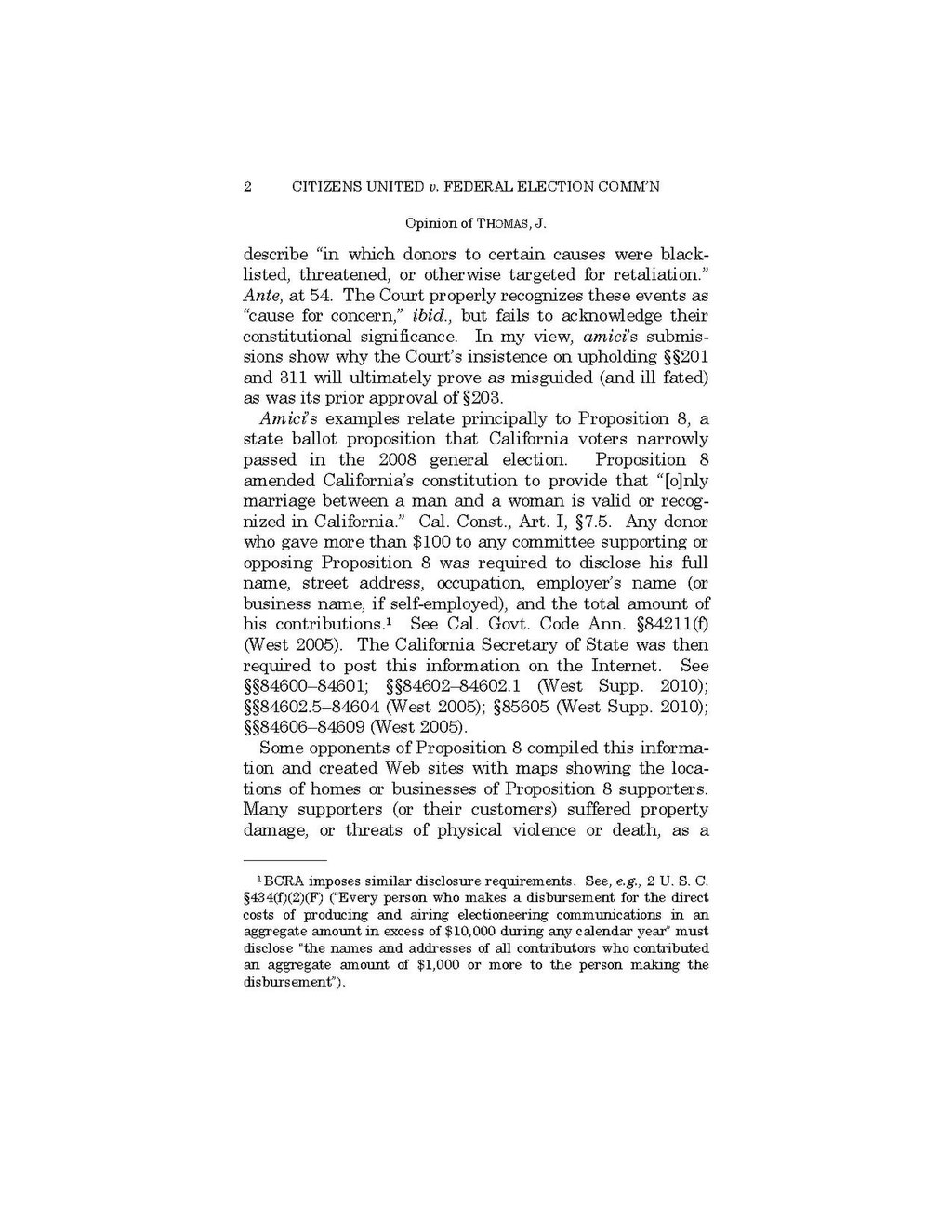Opinion of Thomas, J.
describe "in which donors to certain causes were blacklisted, threatened, or otherwise targeted for retaliation." Ante, at 54. The Court properly recognizes these events as "cause for concern," ibid., but fails to acknowledge their constitutional significance. In my view, amici’s submissions show why the Court’s insistence on upholding §§201 and 311 will ultimately prove as misguided (and ill fated) as was its prior approval of §203.
Amici’s examples relate principally to Proposition 8, a state ballot proposition that California voters narrowly passed in the 2008 general election. Proposition 8 amended California’s constitution to provide that "[o]nly marriage between a man and a woman is valid or recognized in California." Cal. Const., Art. I, §7.5. Any donor who gave more than $100 to any committee supporting or opposing Proposition 8 was required to disclose his full name, street address, occupation, employer’s name (or business name, if self-employed), and the total amount of his contributions.[1]See Cal. Govt. Code Ann. §84211(f) (West 2005). The California Secretary of State was then required to post this information on the Internet. See §§84600–84601; §§84602–84602.1 (West Supp. 2010); §§84602.5–84604 (West 2005); §85605 (West Supp. 2010); §§84606–84609 (West 2005).
Some opponents of Proposition 8 compiled this information and created Web sites with maps showing the locations of homes or businesses of Proposition 8 supporters. Many supporters (or their customers) suffered property damage, or threats of physical violence or death, as a
- ↑ BCRA imposes similar disclosure requirements. See, e.g., 2 U. S. C. §434(f)(2)(F) (“Every person who makes a disbursement for the direct costs of producing and airing electioneering communications in an aggregate amount in excess of $10,000 during any calendar year" must disclose "the names and addresses of all contributors who contributed an aggregate amount of $1,000 or more to the person making the disbursement").
